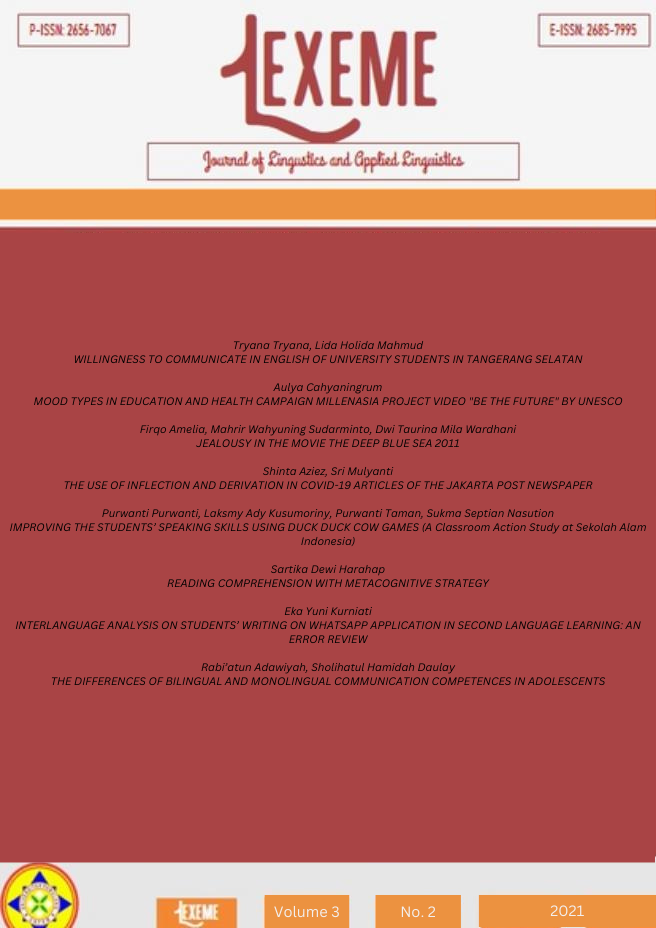READING COMPREHENSION WITH METACOGNITIVE STRATEGY
DOI:
https://doi.org/10.32493/ljlal.v3i2.18698Keywords:
Metacognitive Strategy, Participation, Reading ComprehendsionAbstract
Two factors contribute to students' lack of passion and participation in reading classes. For starters, pupils' reading skills are lacking due to a lack of imagination, participation, and discipline. Second, instructors' tactics are less diverse and participatory. As a result, students are quickly bored and fearful of reading. To address these concerns, the researcher used action research in the classroom to design a metacognitive technique that included three key strategies: planning, monitoring, and evaluation. According to research, employing metacognitive tactics can encourage pupils to read more. This method also boosts pupils' enthusiasm for reading activities. The majority of the pupils was engaged and enjoyed reading, according to the results of the observational analysis of their reactions. Based on the survey has results that reveal 80.55 percent of pupils fell happy do the reading and 75.94 percent of students participate in it. Finally, metacognitive technique can boost student interest and reading engagement in SMA Negeri 1 Panyabungan English books for 10th graders. It is intended that the findings of the study will be useful to other academics and teachers who are involved in conducting research and teaching initiatives, particularly in the field of reading.
References
Auerbach, E. & Paxton, D. (1997). It's not the English thing: bringing reading research into the classroom. TESOL Quarterly, 31, 237-261.
Baker, L. (2008). Metacognitive development in reading: Contributors and consequences. In Mokhtari, K. & Sheorey, R. (Eds.), Reading strategies of First and Second-Language Learners: See how They Read (pp. 25-42). Norwood, MA: Christopher-Gordon.
Brown, A. L., Armbruster, B. B. & Baker, L. (1986). The role of metacognition in reading and studying. In Orasanu, J. (Ed.), Reading Comprehension: From Research to Practice (pp. 49-75). Hillsdale, NJ: Lawrence Erlbaum.
Carrell, P. L., Pharis, B. G., & Liberto, J. C. (1989). Metacognitive strategy training for ESL reading. TESOL quarterly, 23(4), 647-678.
Devine, J. (1993). The role of metacognition in second language reading and writing. In Carson, J. & Leki, I. (Eds.), Reading in the Composition Classroom: Second Language Perspectives. Boston: Heinle & Heinle.
Gnoi, A. (1998). In Forum English Teaching, we teach vocabulary in color. United States Information Agency, Washington, DC.
Gousseva, J. (1998). Literacy development through peer reviews in a freshman composition classroom. The Internet TESL Journal, 4(12).
Muthuchamy, I. (2019). Acquiring Vocabulary Through a Context-Based Approach. Journal of English, 7(2), 14-17.







